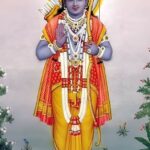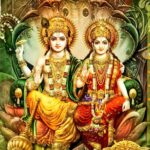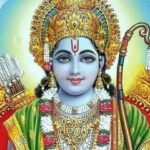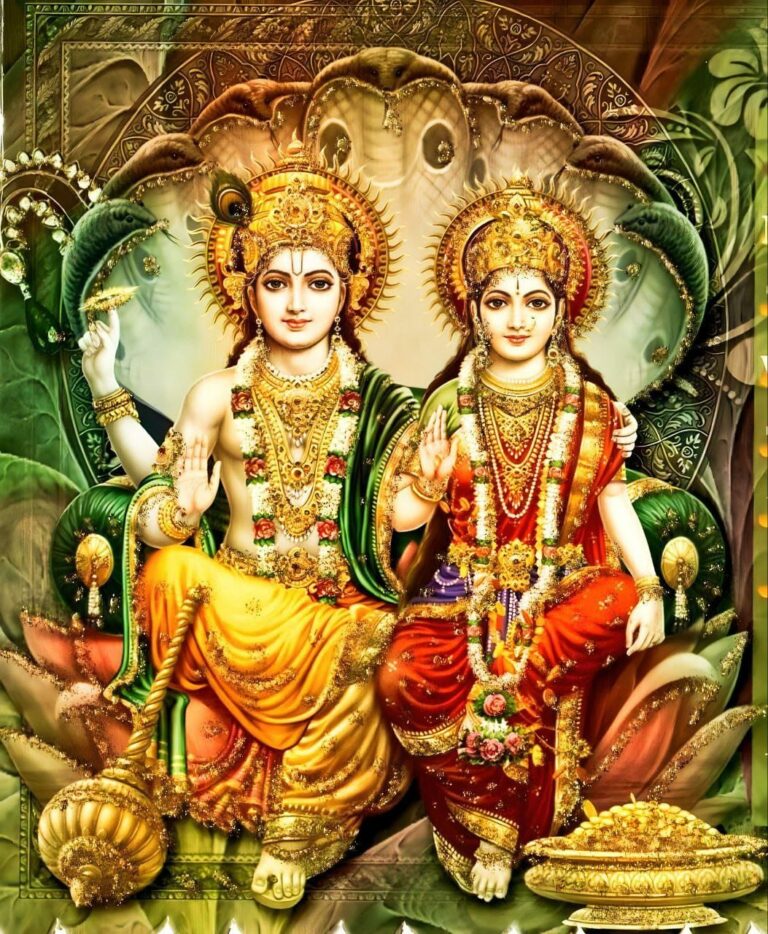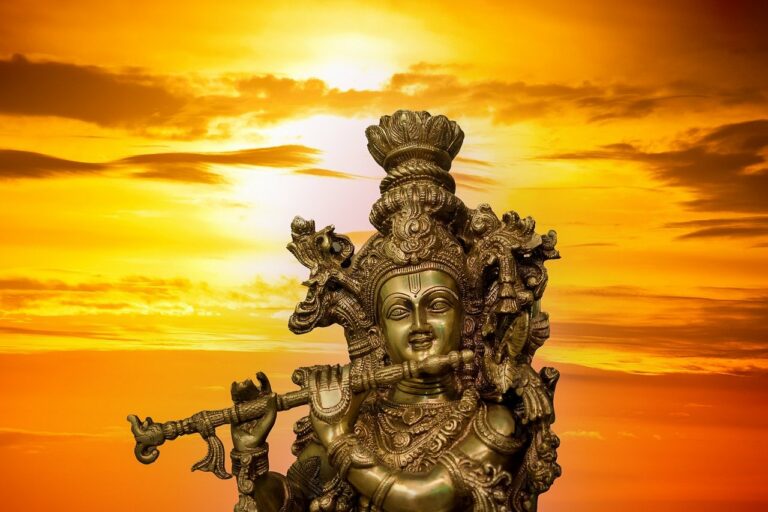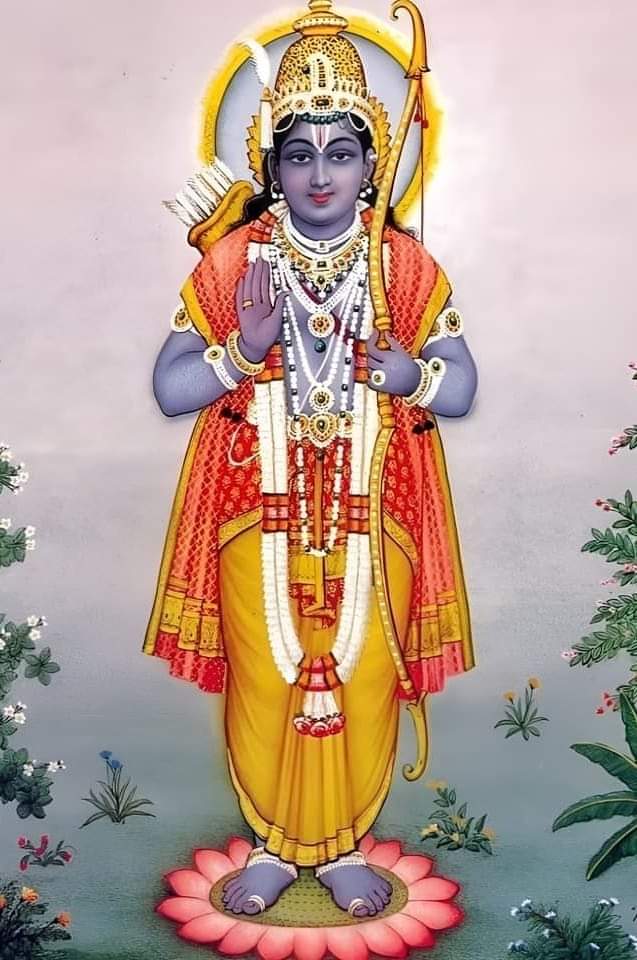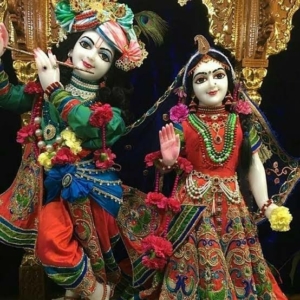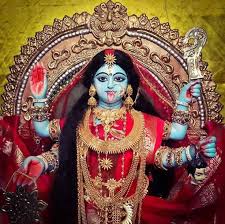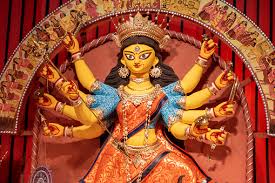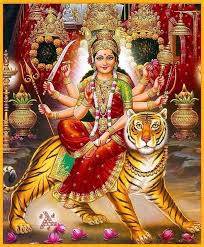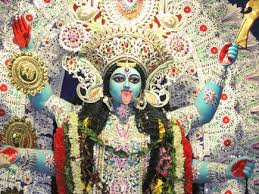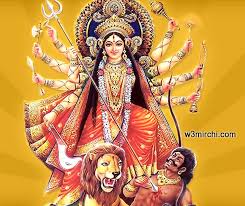इस ग्रंथ में कुल 227 भिक्खु-भिक्खुनी विनयों का उल्लेख है। ‘विनय’ अर्थात आचार संहिता या नियमावली जिनसे भिक्खु संघ, भिक्खुनी संघ संचालित होता है। ऐसा नहीं है कि संघ को अनुशासित रखने के लिए भगवान बुद्ध ने सारे 227 नियम एक दिन बना कर घोषित कर दिये कि इनका पालन करना है, बल्कि प्रसंगानुसार घटनाएं होती रहीं और विनय बनते रहे। कोई भी विनय बना है तो उसके पीछे कोई घटना अथवा प्रसंग है।
एक तरह से विनय पिटक संसार का पहला संविधान है। देशों के संविधान देशों के लिए हैं, लेकिन विनय पिटक मानवता का संविधान है, शील और विनय की आचारसंहिता है। घोषित रूप से यह भिक्खु भिक्खुनियों के लिए है, लेकिन सूक्ष्मता से अवलोकन करें तो 227 विनयों में से बमुश्किल 27 विनय ही ऐसे होंगे जो विशिष्ट रूप से सिर्फ भिक्खुओं अथवा भिक्खुनियों पर लागू होंगे, जैसे चीवर धारण करने की विधि, ब्रह्मचर्य व्रत, मुण्डित सिर, माला-गंध-विलेपन, श्रृंगार प्रसाधनों का निषेध इत्यादि। शेष 200 विनय ऐसे हैं जो मानवमात्र को अनुशासित रखने की आचार संहिता हैं- जैसे ऊँचे स्वर में बात नहीं करना, भोजन करते समय मुँह से चप-चप की आवाज़ न निकालना, पेय पदार्थ पीते समय सुरु-सुरु की आवाज न करना। ऐसे विनय के लिए विनय पिटक में बाकायदा सुरू-सुरू वग्गो है। ये सब ऐसे विनय हैं जो एक सभ्य-सुसंस्कृत समाज की आधारशिला है। ये विनय यदि छोटी कक्षाओं से विद्यालयों में सिखाए जाने लगें तो एक ऐसी नस्ल तैयार होगी जो संसार को हिंसा-आतंक-अनाचार से मुक्त कर देगी।
विनय पिटक के भैषज्य-स्कन्धक अध्याय में दो बड़े प्यारे प्रसंग हैं।
एक श्रद्धालु उपासक के घर जब नया तिल और शहद आया तो उसके मन में मुदित विचार आया कि क्यों न सबसे पहले इसे भगवान बुद्ध और भिक्खु संघ को अर्पित करूँ। वह त्वरित पगों से भागता हुआ भगवान बुद्ध के पास गया। सम्मुख पहुँच कर अभिवादन कर एक ओर खड़ा हो गया। कुशल-क्षेम की औपचारिकता पूर्ण कर उसने विनीत स्वर में प्रार्थना की- संघ सहित कल के भोजनदान का पुण्यलाभ का अवसर दें…
भगवान ने मौन स्वीकृति दी।
प्रमुदित मन से घर लौट कर उसने भगवान और भिक्खु संघ के लिए भोजन की तैयारी की। अगली सुबह भोजन तैयार हो जाने पर उसने जा कर भगवान को सूचित किया- भगवान! भोजन तैयार है…
भगवान उपासक के आवास पर पहुँच कर खड़े हो जाते हैं। श्रद्धालु उपासक भगवान के पैर धोता है, सारे संघ के पैर धोता है, भगवान निर्धारित आसन पर बैठ जाते हैं, कतार में संघ बैठ जाता है।
बड़ा विहंगम दृश्य है, उपासक और उसके परिजन थालियां रखते हैं, क्रमिक रूप से खाद्य परोसते हैं, परोसना पूरा होने पर उपासक और उसके परिजन भगवान के सम्मुख रखी थाली को हाथ लगा कर अर्पित करते हैं, भगवान संघ सहित गाथाओं का संगायन करते हैं- फिर भोजन शुरू होता है…
उपासक और परिजन थालियों पर, पात्रों पर नज़र दौड़ाते रहते हैं, जिसमें कमी होती है, तुरंत परोसते हैं…
भोजन भिक्खु संघ कर रहा है लेकिन तृप्ति उपासक और उसके परिवार को मिल रही है…
भोजन के उपरान्त एक पात्र में भगवान के हाथ धुला कर उपासक उनके हाथ पोछता है, कितने सौभाग्यशाली लोग थे!
कर प्रक्षालन पूरा हो चुकने के बाद उपासक और उसका परिवार हाथ जोड़ कर भगवान के सम्मुख, संघ के सम्मुख बैठ जाता है।
भगवान धम्म देशना देते हैं, दान की महिमा का आख्यान करते हैं। उपासक और उसके परिवार की श्रद्धा को पुष्ट करते हैं। फिर भगवान के स्वर का अनुगमन करते हुए पूरा संघ श्रद्धालु परिवार की मंगलकामना करता है- भवतु सब्ब मंगलम् रक्खन्तु सब्ब देवता…
भगवान संघ सहित उठ कर विहार आ जाते हैं। भगवान के चले जाने के उपरान्त अचानक उस श्रद्धालु उपासक को ख्याल आता है- जो तिल, गुड़, शहद भगवान को अर्पित करने के लिए आमंत्रित किया था वह तो परोसना ही भूल गया!
उसके मन में बड़ा पश्चाताप होने लगा। फिर उसने विचार किया कि क्यों न मटकों में भर कर तिल, शहद विहार ले चलूँ, शायद भगवान और संघ स्वीकार कर लें।
उस काल में भिक्खु विनय से उपासक भी सुपरिचित थे, उन्हें पता था कि एक बार भोजन कर चुकने के बाद संघ दोबारा भोजन नहीं करता और ‘विकाल भोजन’ तो नहीं ही करता। ‘विकाल भोजन’ से तात्पर्य दोपहर बाद भोजन। भिक्खु संघ दिन में सिर्फ एक बार, वह भी बस दोपहर के पहले, भोजन करता है। वह भी अगर न मिले तो फिर दिन बिना भोजन के गुजारता है।
बड़े संकोच से वह श्रद्धालु उपासक अपनी सुधार की मंशा से तिल, शहद मटकों में भर कर विहार लेकर पहुँचता है। भगवान के सम्मुख पहुँच कर एक तरफ सकुचाते हुए खड़ा हो जाता है, फिर क्षमायाचना सहित निवेदन करता है:
” भगवान! जिसके लिए मैंने भगवान को संघ सहित आमंत्रित किया था, वह तिल-गुड़-मधु तो मैं परोसना ही भूल गया। कृपा करके इन नये तिलों और मधु को स्वीकार करें…”
उपासक की श्रद्धा देख कर और कुछ भिक्खुओं को भोजन से अतृप्त देख कर भगवान ने उपासक से कहा- उपासक! तिल और मधु संघ को परोसो।
ऐसा होता था कि संघ के भोजनदान के समय, कहीं भगवान से ज्यादा देर तक न खाता रह जाऊँ, उनको हमारे कारण इंतजार करना पड़े, इस संकोच में कुछ भिक्खु अतृप्त रहते हुए ही ‘बस’ कह देते थे या किसी अन्य संकोच में भी कम खाते थे अथवा अगर अकाल-दुर्भिक्ष होता था तब भी कुछ भिक्खु कम भोजन करते थे ताकि कोई अन्य भूखा भी भोजन पा जाए- इतना अनुशासित और संवेदनशील था भगवान का संघ!
श्रद्धालु उपासक को तिल और मधु परोसने का आदेश देते सुन कर संघ भगवान को देखने लगा। तब भगवान ने करुमामय स्वर में कहा- भिक्खुओं! अनुमति देता हूँ, भोजन के उपरान्त भी मिष्ठान्न स्वीकार करने की, अतृप्त रह गये संघ को दोबारा भोजन करने की…
इस प्रकार भगवान के संघ में भोजन के उपरान्त मिष्ठान्न स्वीकार करने का विनय बना।
आज भी इस देश में साधु समाज को तिल-गुड़-शहद दान देने का धार्मिक विधान है। इसकी उत्पत्ति का मूल भगवान के संघ का यह विनय है।
वह उपासक तिल-गुड़-शहद मटको में भर कर गाड़ियों में लाद कर विहार लाया था। गाड़ी-घोड़ा या बैलगाड़ी को पालि भाषा में सकट अथवा शकट कहते हैं। शताब्दियों के लम्बे अन्तराल के बाद परम्पराएं अभी भी जीवित हैं, लेकिन कथानक बदल गये हैं। माघ माह की चतुर्थी को सकट पूजा होती है जिसमें जिस दिन तिल-गुड़-शहद ही मुख्य सामग्री होती है। उस दिन विनायक पूजा का विधान है, माताएं अपने पुत्रों के कुशल-मंगल के लिए यह उपवास करती हैं। विनायक का अर्थ होता है- जो विनय का नायक है- विनय से परिपूर्ण है। भगवान बुद्ध ही विनायक हैं। संघ का एक पर्यायवाची गण भी है, उसका अध्यक्ष होने से भगवान बुद्ध का एक सम्बोधन गणपति भी है। विनायक, गणपति इत्यादि का अर्थ अब मिथकीय पात्र हो गया है लेकिन ऐतिहासिक रूप से ये सम्बोधन भगवान के लिए प्रयोग किये गये हैं- मज्झिम निकाय में उन्हें स्पष्ट रूप से विनायक और गणपति सम्बोधित किया गया है।
परम्पराओं की विवेचना करें तो कई धागे हाथ लगते हैं- तिल, तिलवा, तिल एकादशी, षट् तिला द्वादशी इत्यादि कई व्रत व त्योहार हैं जिनमें तिल-गुड़-शहद दान का ही विधान है। अब मिथकीय कथानक जो भी प्रचलन में हों, लेकिन इन परम्पराओं के ऐतिहासिक धागे सीधे भगवान बुद्ध और उनके काल से जुड़े हैं।
विनय पिटक के भैषज्य-स्कन्धक दूसरा प्रसंग भी बड़ा मर्मस्पर्शी है।
साढ़े बारह सौ के विशाल संघ के साथ भगवान वाराणसी में विहार कर रहे थे। वह संघ के साथ अन्धकविन्द की ओर चारिका कर रहे थे।
बुद्ध प्रमुख भिक्खु संघ को भोजनदान कर पुण्यलाभ अर्जित करने के धम्म लोभ में अनेक समर्थ लोग तेल, नमक, चावल व अन्य खाद्य पदार्थ गाड़ियों में लाद कर संघ के पीछे-पीछे चल रहे थे कि जब उन्हें अवसर मिलेगा तो वह भी पावन संघ को भोजनदान करेंगे।
एक श्रद्धालु उपासक भी इसी प्रत्याशा में पीछे-पीछे लगा था। भगवान अपने संघ के साथ अन्धकविन्द पहुँच गये, मगर उस उपासक की बारी नहीं आयी। घर से दूर हुए उसे दो महीने हो चुके थे।
कितना समृद्ध काल था इस देश का! धन-धान्य से समृद्धि कि साढ़े बारह सौ के विशाल संघ के साथ भगवान विहार कर रहे थे और एक श्रद्धालु को दो महीने में भी अवसर नहीं मिल पा रहा था कि वह बुद्ध प्रमुख संघ को भोजन करा सके। यह देश ऐसे ही सोने की चिड़िया नहीं कहा जाता था। आध्यात्मिक समृद्धि भौतिक समृद्धि भी देती है। वह बुद्ध का काल था, बौद्धकाल था, देश आध्यात्मिक रूप से भी समृद्ध था, भौतिक रूप से भी सम्पन्न था।
वह श्रद्धालु उपासक अपने घर का अकेला व्यक्ति था जिस पर पूरे परिवार का दायित्व था। उसे घर की चिन्ता भी सताने लगी, काम-धाम की याद आने लगी। उसने अपने मन में विचार किया- जिन लोगों को भोजन कराने का अवसर मिल पा रहा है, उन्हीं को परोसते देखूँ, जिस सामग्री का भोजन में अभाव हो वह व्यवस्था ही मैं कर दूँ, इससे मुझे बीच में ही भोजनदान का पुण्यलाभ मिल जाएगा।
यह सोच कर उसने अन्य श्रद्धालुओं का भोजन देखा और पाया कि भोजन में मिष्ठान्न नहीं है, यवागू अर्थात गीली खिचड़ी नहीं है।
बड़े उत्साहित मन से भागता हुआ वह भगवान के उपस्थापक आनन्द के पास गया। उनसे अपनी स्थिति स्पष्ट की:
“बुद्ध प्रमुख भिक्खु संघ को भोजनदान देने की प्रत्याशा में दो महीने से संघ के पीछे-पीछे चल रहा हूँ, लेकिन मेरी बारी अभी तक नहीं आयी है। मैं घर का अकेला हूँ। काम-धाम छोड़ कर पुण्यलाभ की प्रत्याशा में भगवान के पीछे-पीछे चल रहा हूँ। पता नहीं मेरी बारी कब आएगी। इसलिए मैंने सोचा कि जो लोग भोजन कराने का अवसर पा गये हैं, उन्हें परोसते देखूँ, भोजन में जिस खाद्य सामग्री का अभाव हो, वह व्यवस्था ही मैं कर दूँ, मैंने पाया कि भोजन में यवागू और मिष्ठान्न में मधुपिण्ड(लड्डू) कोई नहीं परोस रहा है। यदि गीली खिचड़ी और लड्डू तैयार कराऊं तो क्या भगवान स्वीकार करेंगे?”
आनन्द ने कहा- उपासक! भगवान से पूछ कर बताता हूँ…
यह कह कर आनन्द ने सारा विवरण जा कर भगवान को बताया। करुणामय भगवान ने उस श्रद्धालु उपासक की परिस्थिति को समझा कि वह अपना काम-धाम छोड़ कर दो महीने से भोजनदान की प्रत्याशा में पीछे-पीछे लगा है। भगवान ने आनन्द से कहा- आनन्द! उपासक से कहो कि वह तैयारी करे…
आनन्द ने आकर उपासक से कहा- उपासक! भगवान ने अनुमति दे दी है। तुम जाओ, खिचड़ी और लड्डू तैयार कराओ।
श्रद्धालु उपासक की श्रद्धा से आँखें छलक आयीं। आखिर दो महीने के बाद उसे भगवान को भोजनदान का अवसर मिल पाया था। उसकी आँखों से खुशी के आंसू छलक पड़े थे।
साढ़े बारह सौ के विशाल भिक्खु संघ के लिए उपासक ने प्रभूत मात्रा में यवागू और मधुपिण्ड तैयार कराए। संघ के भोजन समाप्ति से पूर्व उसने भगवान के सम्मुख एक थाल में खिचड़ी और लड्डू परोस कर स्वीकार करने की प्रार्थना की।
उस समय ऐसा विनय था कि भोजन शुरू होने से पूर्व और समाप्त होने के बाद कुछ भी खाद्य स्वीकार करना निषिद्ध था।
उपासक द्वारा खिचड़ी और लड्डू परोसने पर संघ भगवान को देखने लगा।
खिड़की को पालि भाषा में यवागू और लड्डू को मधुपिण्ड कहते हैं। यवागू वास्तव में गीली खिचड़ी होती है जिसे चिकित्सक प्रायः रोगियों को संस्तुत करते हैं। वास्तविक अर्थों में खिचड़ी खाद्य नहीं बल्कि पेय भोज्य है।
उपासक द्वारा भगवान के सम्मुख यवागू और मधुपिण्ड परोसा गया। भगवान ने यह दान स्वीकार किया और भिक्खुओं को भी अनुमति दी- भिक्खुओं! गृहण करो…
तब से संघ में भोजन की समाप्ति के बाद भी पेय और मिष्ठान्न स्वीकार करने का विनय बना।
भोजन की समाप्ति पर भगवान द्वारा थाली से हाथ खींच लेने तथा हाथ धोने के उपरान्त वह उपासक भगवान की धम्म देशना और अनुमोदन-आशीष की प्रत्याशा में एक ओर हाथ जोड़ कर बैठ गया।
उस दिन भगवान ने खिचड़ी की महिमा पर ही अपना प्रवचन दिया। भगवान ने कहा:
“उपासक! खिचड़ी के दस महात्म्य हैं। दस गुण हैं-
- खिचड़ी देने वाला आयु का दाता होता है।
- खिचड़ी देने वाला वर्ण, रूप का दाता होता है।
- खिचड़ी देने वाला सुख का दाता होता है।
- खिचड़ी देने वाला बल का दाता होता है।
- खिचड़ी देने वाला प्रतिभा का दाता होता है।
- उसकी दी खिचड़ी से क्षुधा शान्त होती है।
- उसकी दी खिचड़ी प्यास का शमन करती है।
- उसकी दी खिचड़ी वायु को अनुकूल करती है।
- खिचड़ी पेट को साफ करती है।
- खिचड़ी न पचे को पचाती है।
“खिचड़ी के ये दस गुण हैं। जो संयमी, श्रद्धालु दूसरे के दिये भोजन करने वालों को समय पर सत्कारपूर्वक यवागू का दान करता है उसे ये दस फल मिलते हैं-
- आयु
- रूप-वर्ण
- सुख
- बल
- प्रतिभा उत्पन्न होती है।
- क्षुधा शान्त होती है।
- प्यास शान्त होती है।
- वायु विकार नहीं होता, वायु अनुकूल रहती है।
- पेट का शोधन होता है।
- पाचन ठीक रहता है।”
भगवान ने यह भी कहा कि यह औषधि तुल्य है। दिव्य सुख की चाह रखने वाले और सौभाग्य की इच्छा रखने वाले व्यक्ति को खिचड़ी का दाता होना चाहिए।
इस प्रकार भगवान बुद्ध द्वारा खिचड़ी का माहात्म्य बताए जाने के कारण कालान्तर में खिचड़ी भारत का एक ‘धार्मिक भोजन’ भी हो गयी और साधु समाज का सबसे प्रिय भोजन हो गयी। न केवल इतना, बल्कि श्रद्धालुओं के लिए भोजनदान की यह सबसे प्रिय सामग्री हो गयी क्योंकि यह जल्दी से और सरलता से तैयार हो सकती है।
ढाई हजार साल के एक लम्बे अन्तराल में खिचड़ी के दान ने एक महान धार्मिक स्वरूप गृहण कर लिया है और धीरे-धीरे सम्पूर्ण भारत में ‘खिचड़ी’ एक पर्व बन गया। भारत के दक्षिणी प्रान्तों में यथा तमिलनाडु, कर्नाटक, केरल, आन्ध्र प्रदेश में इसे ‘पोंगल’ कहते हैं, पंजाब-हरियाणा में इसे लोहड़ी कहते हैं, उत्तर भारत के प्रान्तों में इसे ‘खिचड़ी’ कहते हैं। तमिल भाषा में नमकीन खिचड़ी का नाम ‘मेलागू’ है, निश्चित ही यह पालि भाषा के ‘यवागू’ का तमिल संस्करण है। 14 अथवा 15 जनवरी, प्रत्येक वर्ष मकर संक्रान्ति की तिथि ‘खिचड़ी’ के रूप में सर्वमान्य तिथि हो गयी है।
बौद्धों के अठारह निकायों में एक निकाय है जिसे सहजयान कहते हैं। इस सहजयान से अनेक सम्प्रदायों का जन्म हुआ जैसे सिद्ध सम्प्रदाय, भक्ति सम्प्रदाय, नाथ सम्प्रदाय, सहज सम्प्रदाय आदि। इसमें से नाथ सम्प्रदाय ने भारत को अनेक विख्यात संत और सिद्ध दिये।
नाथ सम्प्रदाय का आदि संस्थापक योगी मत्स्येन्द्रनाथ को माना जाता है। योगी मत्स्येन्द्रनाथ की चौरासी सिद्धों में गणना होती है। बौद्धों के चौरासी सिद्धों में योगी मत्स्येन्द्रनाथ और उनके शिष्य योगी गोरक्षनाथ का क्रम आठ और नौ पर बड़े आदरपूर्वक स्मरण होता है। तिब्बती परम्परा ने बौद्धों के चौरासी सिद्धों का इतिहास क्रमिक रूप से संरक्षित किया हुआ है। तिब्बती परम्परा योगी मत्स्येन्द्रनाथ को मीनपा और योगी गोरक्षनाथ को गोरक्षपा सम्बोधित करती है।
योगी मत्स्येन्द्रनाथ और योगी गोरक्षनाथ के आध्यात्मिक नेतृत्व में भारत में नाथ सम्प्रदाय का जन्म हुआ। यद्यपि यह सम्प्रदाय आज दार्शनिक अर्थों में अपने मौलिक स्रोत बुद्ध धम्म से भिन्न दिखने लगा है तथापि इसमें व्याप्त परम्पराएं उनके स्रोत के बड़े सघन संकेत भी दर्शाती हैं। उन संकेतों में सबलतम संकेत है- ‘खिचड़ी’।
नाथ सम्प्रदाय में ‘खिचड़ी’ सबसे प्रमुख ‘प्रसाद’ अथवा ‘चढ़ावा’ है। उत्तर प्रदेश में भगवान बुद्ध की निर्वाणस्थली कुशीनगर के निकट जनपद गोरखपुर का नाम नाथ योगी गोरखनाथ के नाम पर है जहाँ प्रसिद्ध मन्दिर गोरखनाथ धाम है। गोरखनाथ धाम में प्रसाद में ‘खिचड़ी’ चढ़ती है।
भगवान बुद्ध ने खिचड़ी की जो महिमा बतायी है उसका प्रत्यक्ष रूप जनपद गोरखपुर के गोरखनाथ मन्दिर में भी देखा जा सकता है। समय के लम्बे अन्तराल के बाद कथा-कथानक-मान्यताएं बदल जाती हैं, लेकिन कुछ सूत्र वर्तमान और अतीत को जोड़ देते हैं, ‘खिचड़ी’ एक सूत्र है जो वर्तमान को सीधे अतीत में भगवान बुद्ध से जोड़ती है।
विगत दिनों भारत की राजधानी नयी दिल्ली में विश्व खाद्य सम्मेलन आयोजित हुआ- 4 नवम्बर’2017 को, जिसमें 60 देशों के मशहूर खानसामाओं, शेफ, ने हिस्सा लेकर अपने-अपने देश के प्रसिद्ध खाद्य पदार्थों का प्रदर्शन किया। इस अवसर पर भारत ने ‘खिचड़ी’ को अपनी ‘ब्रैण्ड डिश’ घोषित किया तथा इसे वैश्विक प्रचार देने के लिए, गिनीज़ बुक में दर्ज़ कराने के लिए, 918 किलोग्राम खिचड़ी एक विशाल कढ़ाई में पका कर साठ हजार अनाथ बच्चों तथा उपस्थित मेहमानों को परोसी गयी। इतना ही नहीं, ‘खिचड़ी’ को विश्व स्तर पर ‘ब्राँण्ड इंडिया खिचड़ी’ के रूप में लोकप्रिय करने के लिए भारत सरकार ने भारत के समस्त विदेशी दूतावासों को पाक विधि के साथ खिचड़ी भेजी।
भगवान बुद्ध का धम्म वैश्विक हो रहा है और उनके द्वारा प्रशंसित ‘खिचड़ी’ भी अब वैश्विक हो रही है।
(मेरी पुस्तक “मैत्री सम्पूर्ण धम्म है” से एक अध्याय का सारांश)
पुस्तक लेखक श्री राजेश चंद्रा जी
A total of 227 Bhikkhu-Bhikkhuni Vinayas are mentioned in this book. ‘Vinaya’ means code of conduct or rules by which Bhikkhu Sangha, Bhikkhuni Sangha operates. It is not that in order to keep the Sangh disciplined, Lord Buddha made all the 227 rules one day and declared that they have to be followed, rather incidents kept happening and Vinay kept on being formed according to the context. If any modesty is made, then there is some incident or context behind it.
In a way, Vinaya Pitaka is the first constitution of the world. The constitutions of countries are for countries, but Vinaya Pitaka is the constitution of humanity, a code of conduct for modesty and modesty. Declaredly it is for Bhikkhus and Bhikkhunis, but if we look closely, out of 227 Vinayas, there will be hardly 27 Vinayas which are specifically applicable only to Bhikkhus or Bhikkhunis, such as the method of wearing a robe, vow of celibacy, shaved head. , Garland-smell-ablation, Prohibition of cosmetics etc. The remaining 200 Vinayas are such that there is a code of conduct to keep the human being disciplined – like not talking in a loud voice, not making noises from the mouth while eating, not making the sound of Suru-Suru while drinking beverages. There is a beginning in the Vinay Pitaka for such humility. All these are such modesty which is the foundation stone of a civilized society. If this humility is taught in schools from small classes, then such a breed will be prepared which will free the world from violence-terror-incest.
There are two very lovely episodes in the Bhaishajya-Sandhak chapter of Vinaya Pitaka.
When new sesame and honey came to the house of a devotee worshipper, he thought that why not first of all offer it to Lord Buddha and the Bhikkhu Sangha. He went to Lord Buddha running with quick steps. After reaching in front of him, greeted him and stood on one side. After completing the formalities of well-being, he prayed in a humble voice – Give me an opportunity to reap the benefits of yesterday’s food donation along with the Sangh…
God gave silent approval.
Returning home with a happy heart, he prepared food for the Lord and the Bhikkhu Sangha. The next morning when the food was ready, he went and informed God – God! the food is ready…
God stands at the residence of the worshipper. Devout worshiper washes the feet of God, washes the feet of the whole Sangh, God sits on the designated seat, the Sangh sits in the queue.
There is a great panoramic view, the worshiper and his relatives keep the plates, serve food sequentially, after the completion of the service, the worshiper and his family members offer the plate kept in front of God by touching it, God sings the hymns including Sangha- Then the meal begins…
Worshipers and relatives keep glancing at the plates, utensils, which lacks, serve immediately…
The Bhikkhu Sangh is having the food but the worshiper and his family are getting the satisfaction…
After the meal, the worshiper wipes the hands of God after washing them in a vessel, how fortunate they were!
After the ablution is over, the worshiper and his family sit in front of the God, in front of the Sangha with folded hands.
God preaches Dhamma, narrates the glory of charity. Strengthens the devotion of the worshiper and his family. Then, following the voice of God, the entire Sangh devotees wish the family well – Bhavatu sabba mangalam rakkhantu sabba devat…
God gets up and comes to Vihar along with the Sangha. After God’s departure, suddenly that devoted worshiper remembers – the sesame, jaggery, honey he had invited to offer to God forgot to serve it!
There was a lot of remorse in his mind. Then he thought that why not fill the pots with sesame seeds and honey and take them to Vihar, maybe God and the Sangh will accept them.
In those days, the devotees were also familiar with Bhikkhu Vinay, they knew that once the Sangha does not eat again and does not eat ‘Vikal Bhojan’. ‘Vikal Bhojan’ means the afternoon meal. The Bhikkhu Sangha eats only once a day, that too just before noon. If that too is not found, then the day passes without food.
With a lot of hesitation, that devotee worshiper reaches Vihar with sesame seeds, honey filled in pots with the intention of his improvement. Reaching before God, he stands hesitantly on one side, then requests with apologies:
“God! I forgot to serve sesame seeds, jaggery and honey, for which I had invited God along with the Sangha. Please accept these new sesame seeds and honey…”
Seeing the worshiper’s devotion and seeing some bhikkhus unsatisfied with food, God said to the worshiper – Worshiper! Serve sesame and honey union.
It used to happen that at the time of donating food to the Sangha, I might not be able to eat for a long time from God, he would have to wait for us, in this hesitation some bhikkhus used to say ‘bus’ while being unsatisfied or even less in any other hesitation. Used to eat or even if there was a famine, some bhikkhus used to eat less food so that another hungry person could also get food – so disciplined and sensitive was the Sangha of God!
Hearing the order to serve sesame seeds and honey to the worshiper, the Sangh started looking at God. Then God said in a compassionate voice – Monks! I give permission to accept sweets even after the meal, to have food again for the unsatisfied Sangh…
In this way, in the association of God, it became a custom to accept sweets after a meal.
Even today, there is a religious practice in this country of donating sesame seeds, jaggery and honey to the saints. The root of its origin is this humility of the association of God.
That worshiper had brought sesame-jaggery-honey filled in pots and loaded them in carts to Vihar. Carriage-horse or bullock cart is called Sakat or Shakat in Pali language. The traditions are still alive after a long gap of centuries, but the plots have changed. Sakat Puja is performed on the Chaturthi of the month of Magh, in which sesame-jaggery-honey are the main ingredients. On that day there is a law of Vinayaka Puja, mothers observe this fast for the welfare of their sons. Vinayaka means – who is the hero of modesty – full of modesty. Lord Buddha is Vinayaka. Sangha also has a synonym Gana, being its president, Ganapati is also an address of Lord Buddha. Vinayaka, Ganapati, etc. have now come to mean mythical characters, but historically these epithets have been used for the Lord – in the Majjhima Nikaya he is clearly addressed as Vinayaka and Ganapati.
If we discuss the traditions, then many threads come to hand – Til, Tilwa, Til Ekadashi, Shattila Dwadashi etc. There are many fasts and festivals in which sesame-jaggery-honey donation is the law. Whatever mythological stories are in vogue now, but the historical threads of these traditions are directly related to Lord Buddha and his times.
The second incident of the Vinaya Pitaka, the Bhaishjya-skandaka, is also very touching.
The Lord was roaming in Varanasi with a huge congregation of twelve and a half hundred. He was doing Charika with the Sangh towards Andhakvind.
In the greed of Dhamma to earn merit by donating food to the Buddha chief Bhikkhu Sangha, many capable people were following the Sangha by loading oil, salt, rice and other food items in the vehicles that when they get the opportunity, they too will donate food to the holy Sangha. do.
A devout worshiper was also following in the same anticipation. God reached Andhakvind with his company, but that worshiper’s turn did not come. It had been two months since he was away from home.
What a prosperous period this country had! God was walking with a huge Sangha of twelve and a half hundred and a devotee was not getting the opportunity even in two months to feed the Buddha Pramukh Sangha. This country was not called the golden bird just like that. Spiritual prosperity also gives material prosperity. It was the time of Buddha, the time of Buddhism, the country was rich spiritually as well as materially.
That devout worshiper was the only person in his house on whom the entire family was responsible. He was also worried about the house, he started missing his work-abode. He thought in his mind – I should see those people who are getting the opportunity to serve food, I should make arrangements for the ingredients which are lacking in the food, by this I will get the virtue of donating food in the middle.
Thinking this, he looked at the food of other devotees and found that there was no sweetmeat in the food, there was no Yavagu i.e. wet porridge.
Running with a very excited heart, he went to Ananda, the presiding deity of the Lord. Explained his position to them:
“The Buddha has been following the Sangha for two months in anticipation of offering food to the chief bhikkhus, but my turn has not yet come. I am alone at home. – I am walking behind. I don’t know when my turn will come. That’s why I thought that those who have got the opportunity to serve food, see them being served, the food items that are missing in the food, I should make that arrangement, I found that No one is serving Yavagu in the meal and Madhupind (Laddu) in the dessert. Will God accept if I prepare wet Khichdi and Laddu?
Anand said – Worshiper! I ask God and tell…
Saying this, Anand went and told all the details to God. The compassionate Lord understood the plight of that devout worshipper, that he had left his work and place and had been wandering for two months in anticipation of food donation. God said with joy – joy! Tell the worshiper to prepare…
Anand came and said to the worshiper – Worshiper! God has given permission. You go, get khichdi and laddoos ready.
The eyes of the devoted worshiper overflowed with devotion. Finally after two months he got the opportunity to donate food to God. Tears of happiness were overflowing from his eyes.
For the huge congregation of 1250 bhikkhus, the worshiper got a large quantity of Yavagu and Madhupinda prepared. Before the food of the Sangh was over, he offered khichdi and laddoos in a plate in front of God and prayed to accept it.
At that time there was such a modesty that it was prohibited to accept any food before the start of the meal and after it was over.
When the worshiper served khichdi and laddoos, the Sangh started looking at God.
Window is called Yavagu in Pali language and Laddu is called Madhupinda. Yavagu is actually wet porridge which is often recommended by doctors to patients. In real sense, Khichdi is not a food but a beverage.
Yavagu and Madhupinda were served before the Lord by the worshippers. The Lord accepted this donation and allowed the bhikkhus as well – Bhikkhus! adopt…
Since then, it has become customary in the Sangh to accept drinks and sweets even after the end of the meal.
At the end of the meal, after the Lord had removed his hands from the plate and washed his hands, the worshiper sat with one hand folded in anticipation of the Lord’s preaching and approval-blessings.
That day God gave his discourse on the glory of Khichdi. God said:
“Worshipper! Khichdi has ten greatness. Ten qualities are- The one who gives Khichdi is the giver of age. The one who gives khichdi is the giver of character and form. The one who gives Khichdi is the giver of happiness. The one who gives Khichdi is the giver of strength. The one who gives khichdi is the giver of talent. His khichdi satisfies the appetite. His khichdi quenches thirst. His di khichdi adapts to the air. Khichdi cleanses the stomach. Khichdi digests the undigested.
“These are the ten qualities of Khichdi. One who is self-controlled, devoutly donates yavagu at the right time to those who eat food given by others, he gets these ten fruits- age Appearance Happiness Force Talent is born. Appetite calms down. Thirst is satisfied. There is no air disorder, the air remains friendly. Stomach is purified. Digestion is fine.”
God also said that it is like medicine. A person desirous of divine happiness and good luck should be a donor of Khichdi.
In this way, due to the greatness of Khichdi being told by Lord Buddha, Khichdi became a ‘religious food’ of India and became the most favorite food of the sage society. Not only this, but it has become one of the favorite food offerings for the devotees as it can be prepared quickly and easily.
In a long span of two and a half thousand years, the donation of Khichdi has assumed a great religious form and gradually ‘Khichdi’ became a festival all over India. In the southern states of India like Tamil Nadu, Karnataka, Kerala, Andhra Pradesh it is called ‘Pongal’, in Punjab-Haryana it is called Lohri, in the states of North India it is called ‘Khichdi’. The Tamil name for salty porridge is ‘melagu’, apparently a Tamil version of the Pali language ‘yavagu’. 14th or 15th January, every year, the date of Makar Sankranti has become universal date in the form of ‘Khichdi’.
Among the eighteen bodies of Buddhists, there is one body called Sahajayana. Many sampradayas were born from this Sahajyan like Siddha sampradaya, Bhakti sampradaya, Nath sampradaya, Sahaj sampradaya etc. Out of this, the Nath community gave many famous saints and siddhas to India.
Yogi Matsyendranath is considered to be the original founder of the Nath sect. Yogi Matsyendranath is counted among the eighty-four Siddhas. Yogi Matsyendranath and his disciple Yogi Gorakshanath are remembered with great respect on eight and nine of the eighty-four Siddhas of Buddhists. Tibetan tradition has successively preserved the history of the eighty-four Siddhas of the Buddhists. Tibetan tradition addresses Yogi Matsyendranath as Meenpa and Yogi Gorakshanath as Gorakshapa.
The Nath sect was born in India under the spiritual leadership of Yogi Matsyendranath and Yogi Gorakshanath. Although this sect has started appearing different from its original source Buddha Dhamma in the philosophical sense today, yet the traditions prevalent in it also show very dense signs of their source. The strongest signal among those signals is – ‘Khichdi’.
‘Khichdi’ is the most important ‘prasad’ or ‘offering’ in the Nath community. District Gorakhpur near Kushinagar, the Nirvana place of Lord Buddha in Uttar Pradesh is named after Nath Yogi Gorakhnath where the famous temple Gorakhnath Dham is situated. ‘Khichdi’ is offered in Prasad in Gorakhnath Dham.
The glory of Khichdi that Lord Buddha has told, its direct form can also be seen in the Gorakhnath temple of district Gorakhpur. The story-plot-beliefs change after a long gap of time, but some sutras connect the present and the past, ‘Khichdi’ is a sutra that directly connects the present with Lord Buddha in the past.
Recently, the World Food Conference was held in the capital of India, New Delhi – on November 4, 2017, in which famous cooks, chefs from 60 countries took part and displayed the famous foods of their respective countries. On this occasion, India declared ‘Khichdi’ as its ‘Brand Dish’ and to give it global publicity, to register in the Guinness Book, 918 kg of Khichdi was cooked in a huge cauldron and served to sixty thousand orphans and guests present. Gone. Not only this, to popularize ‘Khichdi’ globally as ‘Brand India Khichdi’, the Government of India sent Khichdi to all the foreign embassies of India with culinary method.
The Dhamma of Lord Buddha is going global and the ‘Khichdi’ praised by him is also going global now.
(Summary of a chapter from my book “Friendship is Sampoorna Dhamma”)
Book writer Mr. Rajesh Chandra


